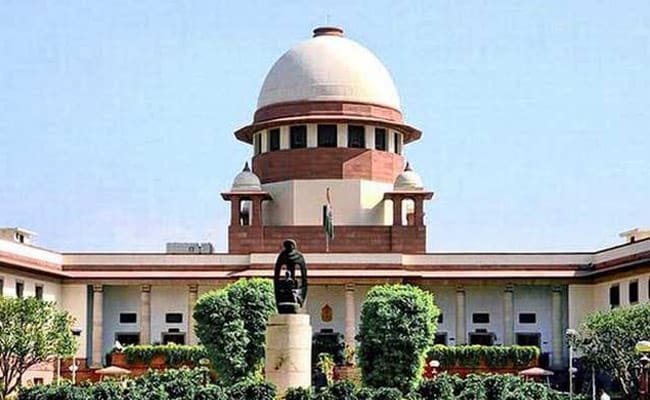The Supreme Court on Friday dismissed petitions seeking a court-monitored SIT probe – under the oversight of a retired Justice of the top court – into the sale of (now banned) electoral bonds amid allegations of “quid pro quo” arrangements between political parties and corporate donors.
The court said individual grievances – referring to discrete claims of quid pro quo deals between a political party and a corporate organisation – “will have to be pursued on basis of remedies available under the law”, which include options should authorities decline to investigate specific claims.
“At present, absent recourse to remedies available in law, it would be premature and inappropriate for this court (to interfere)… because intervention must proceed (after) failure of those remedies… at this stage the court cannot say if these normal remedies will not be efficacious,” the court said.
The petitions were filed by activist groups Common Cause and Centre for Public Interest.
The petitioners had sought directions to law enforcement agencies to investigate funding of political parties via “shell and loss-making companies” as disclosed by Election Commission-released data.
READ | Electoral Bonds “Unconstitutional”, Stop Immediately: Supreme Court
Electoral bonds were scrapped in February. In a landmark ruling weeks before the Lok Sabha election, the court said the undisclosed funding to political parties violated voters’ right to transparency.
“Most Extraordinary Corruption Case…”
The spectre returned to the top court this morning with a batch of four petitions, including one seeking the court-monitored SIT probe. Senior advocate Prashant Bhushan said a special inquiry was merited because “governments are involved… ruling party and top corporate houses are involved”.
“There is a money trial of over Rs 8,000 crore! In some cases, companies like IFB Agro paid Rs 40 crore in bonds as it was facing issues in Tamil Nadu… this is not limited to one political party,” he said.
READ | “Opposition Got Bonds Too…” Amit Shah Rebuts Rahul Gandhi
“Most extraordinary case of corruption… one of the worst financial scams in India’s history,” he said, adding, “Unless investigation is monitored by retired Justice of this court, nothing will come out of it.”
“No party should be allowed to sit on money received by way of kickbacks and bribes…”
The court, though, appeared, unconvinced, and suggested the petitioner “let the normal course (of events)” follow its landmark verdict this year, which included ordering the State Bank of India to release data identifying donors and the parties to whom donations – many in crores – were made.
READ | Electoral Bonds Data Released, Donors, Parties Can Be Matched
“We ordered disclosure. We went to a point… we quashed the scheme. What will an SIT investigate now?” the court asked. Mr Bhushan replied, “If there was quid pro quo… and who was involved?”
A still-not-convinced court pointed out “this will virtually be an open-ended inquiry”.
“Can we appoint a SIT when there are remedies available in law?” the Chief Justice asked.
“This will be a far-fetched and roving inquiry,” Justice JB Pardiwala added, “You (Mr Bhushan) said shell companies are involved… so what can SIT do? What do you expect SIT to do…?”
NDTV Explains | The Electoral Bonds Scheme And The Case Against It
The petitioner insisted, “Look at those cases in which prima facie evidence has come to light by means of investigative reports by media organisations”, and referred to the coal mining block scandal.
“In that case court quashed leases on grounds of arbitrariness and felt there were sufficient circumstances to inquire into the mining leases,” Mr Bhushan argued, referring to another allegation of quid pro quo – the award of a contract after purchase of bonds worth Rs 140 crore.
Certain donations, he continued, were made by pharmaceutical companies (and) “after receiving the bonds inquiries against them by drug control agency went silent…”
“So many companies donated within three years of incorporation. Am only asking SIT investigates quid pro quo… no other investigation can reach any conclusion or carry any credibility.”
The court, however, remained sceptical. “Has any word of (any) contract been challenged in any writ? Is there any material to show award X for price Y? There has to be data for SIT to probe this…”
“We are of the opinion that setting up a SIT is not the solution,” the court declared.
Electoral Bonds
Notified by the ruling BJP in January 2018, this was pitched as an alternative to cash donations made to political parties as part of its efforts to bring in transparency in political funding.
READ | Infra Firm, Mining, Telecom Giant Are BJP’s Largest Bonds Donors
But the court called the scheme unconstitutional and said information about political funding is essential for voters to make electoral choices. Such a system – meaning electoral bonds – could lead to governments tweaking national policies in favour of donors, many of which were large corporates.
READ | “Everyone Will Regret”: PM On Scrapping Of Electoral Bonds
The BJP had insisted the scheme, though not perfect, helped eliminate black money, referring to unaccounted cash or funds from criminal activities, in election campaigns. Prime Minister Narendra Modi called the court’s decision one “everyone will regret when there is honest reflection”.
“We were looking for a way. We found a small way… never claimed this was absolute,” he said, building on comments from earlier this month, when he told a Tamil news channel “no system is perfect… shortcomings can be improved“.
NDTV is now available on WhatsApp channels. Click on the link to get all the latest updates from NDTV on your chat.














